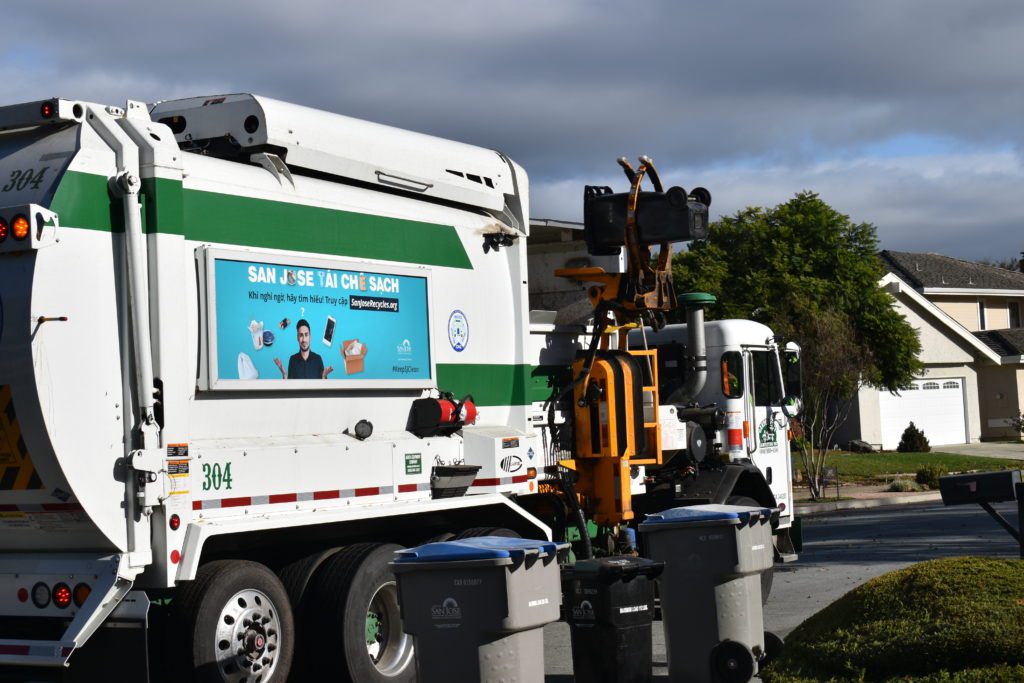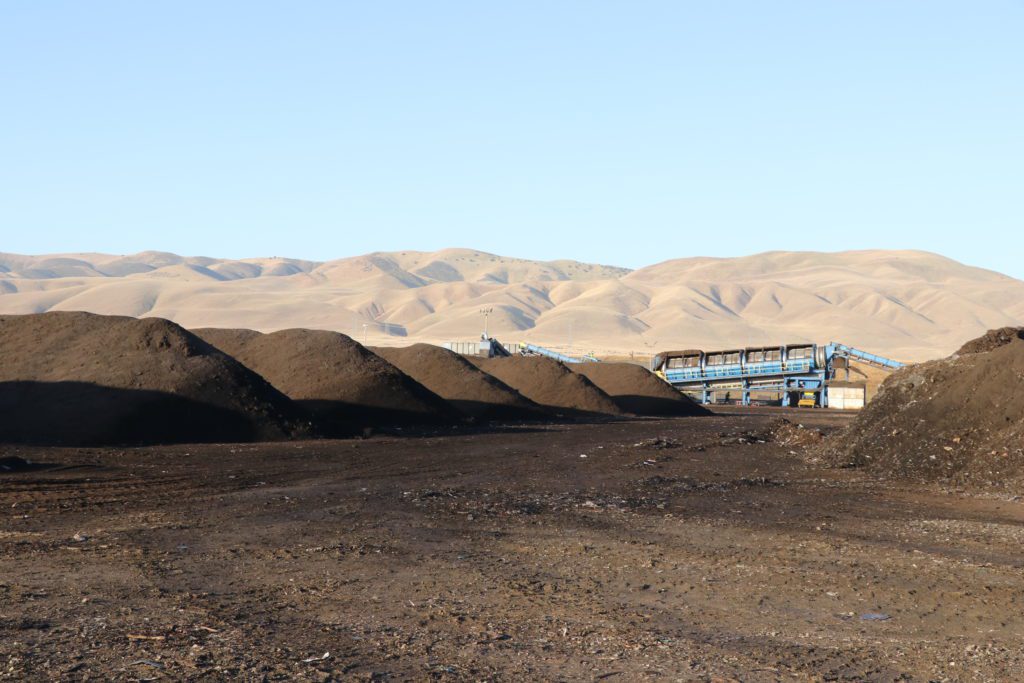Scraping food off your plate into the trash just become a no-no in more Santa Clara County cities as of 2022.
California’s new composting law ushered by Senate Bill 1383 aims to fight climate change by reducing methane emissions created by organic material in landfills.
The bill requires a 75% reduction in organic waste disposal from 2014 levels by 2025 of up to 27 million tons of organic waste.
Rachel Machi Wagoner, director of CalRecycle, the agency that oversees the state’s waste management, said SB 1383 is the biggest change to the trash system since recycling in the 1980s.
“This is a huge statewide initiative for us to achieve a 75% reduction in organic waste sent to landfills by 2025,” she told San José Spotlight. “When we achieve that… it will be the equivalent of taking nearly a million cars off the road for a year.”
San Francisco pioneered collecting curbside food scraps for composting 25 years ago, partnering with Recology. Its program has kept 2.5 million tons of food scraps and yard trimmings from ending up in landfills.
Since 2008, San Jose has also been at the forefront of reclaiming organic waste and is working toward a zero-waste plan, Machi Wagoner said. San Jose residents won’t experience any changes with the new law in putting out their garbage, recycling and yard trimmings. Garbage is sorted at the GreenWaste materials recovery facility, which removes the food and compostable paper from the trash and sends it to be composted.

Jennie Loft, a spokesperson with the city’s Environmental Services Department, said it’s critical to keep organics out of the landfill. She said methane is one of the more potent greenhouse gases and climate change contributors. Landfills emit about 20% of the state’s methane.
San Jose residents and businesses are already in compliance with SB 1383, she said, through the existing collection system. The city will be sending postcards to residents in February or March explaining this.
Loft said food scraps and food soiled materials should be put in the garbage and not added to the recycling bin or yard trimmings in the street. As part of SB 1383, residents are being asked to empty and scrape organics from recyclable materials.
West Valley Collection and Recycling, which serves residents in Campbell, Los Gatos, Monte Sereno and Saratoga, has already made changes in response to SB 1383, said Outreach Manager Weslie McConkey. Residents can put food scraps into their existing yard trimmings cart, which is now considered the organics cart.
McConkey said the only downside of the new system is that it takes people a while to get used to change. A 2.5 gallon pail with a lid is being provided for residents to use in the kitchen for food scraps. She suggests people put yard trimmings in their carts first before dumping food in so it’s less likely to stick to the bottom.
“It used to be, when in doubt, put it in the recycling,” she said. “Now, it’s when in doubt, throw it out. We don’t want the recycling contaminated.”

Separating out food scraps is nothing new to residents of Los Altos, said Mission Trail Waste Systems President Louie Pellegrini. They’ve been doing it since 2010. Residents put food scraps in their yard waste carts for composting.
“We embraced this early on,” Pellegrini said. “The legislation took five years to be employed, but we knew it was coming and we’re in pretty good shape with the programs.”
The city of Santa Clara, which Mission Trail Waste Systems also serves, has taken a different approach, he said. Residents are instructed to keep food waste in the trash cart like they were previously doing. The trash is brought to a processing plant to be sorted to separate food waste which is sent to a composting facility.
The greatest challenge, Pellegrini said, is that material from each household, some sorted properly and some not, gets mixed up in the truck and the processors have to deal with it.
“Not everybody does it correctly and the few that don’t could contaminate all the effort of everyone else,” Pellegrini said. “People will participate, but it’s not going to be perfect.”

Recology South Valley provides compost, recycling and disposal services to Morgan Hill and Gilroy.
Tanya Carothers, Morgan Hill’s environmental services administrator, said SB 1383 won’t have a great impact on homeowners in Morgan Hill or Gilroy as it’s been included in their organic waste recycling for more than 10 years. But businesses are now required to have three collection bins inside their facilities: trash, recycling and organic waste. They’ll have to find space to place the bins and ensure people sort materials correctly.
Jocelyn Baird, waste zero manager for Recology Mountain View, said the city has had compost service for single-family households with carts for yard waste since 2017. They’ve now expanded this to food scraps and food soiled paper.
“The goal is to have all food scraps and food soiled paper like greasy pizza boxes and yard trimmings go into compost,” she said, “so they don’t have to go into the trash and end up in landfills.”
Contact Lorraine Gabbert at [email protected].



Leave a Reply
You must be logged in to post a comment.